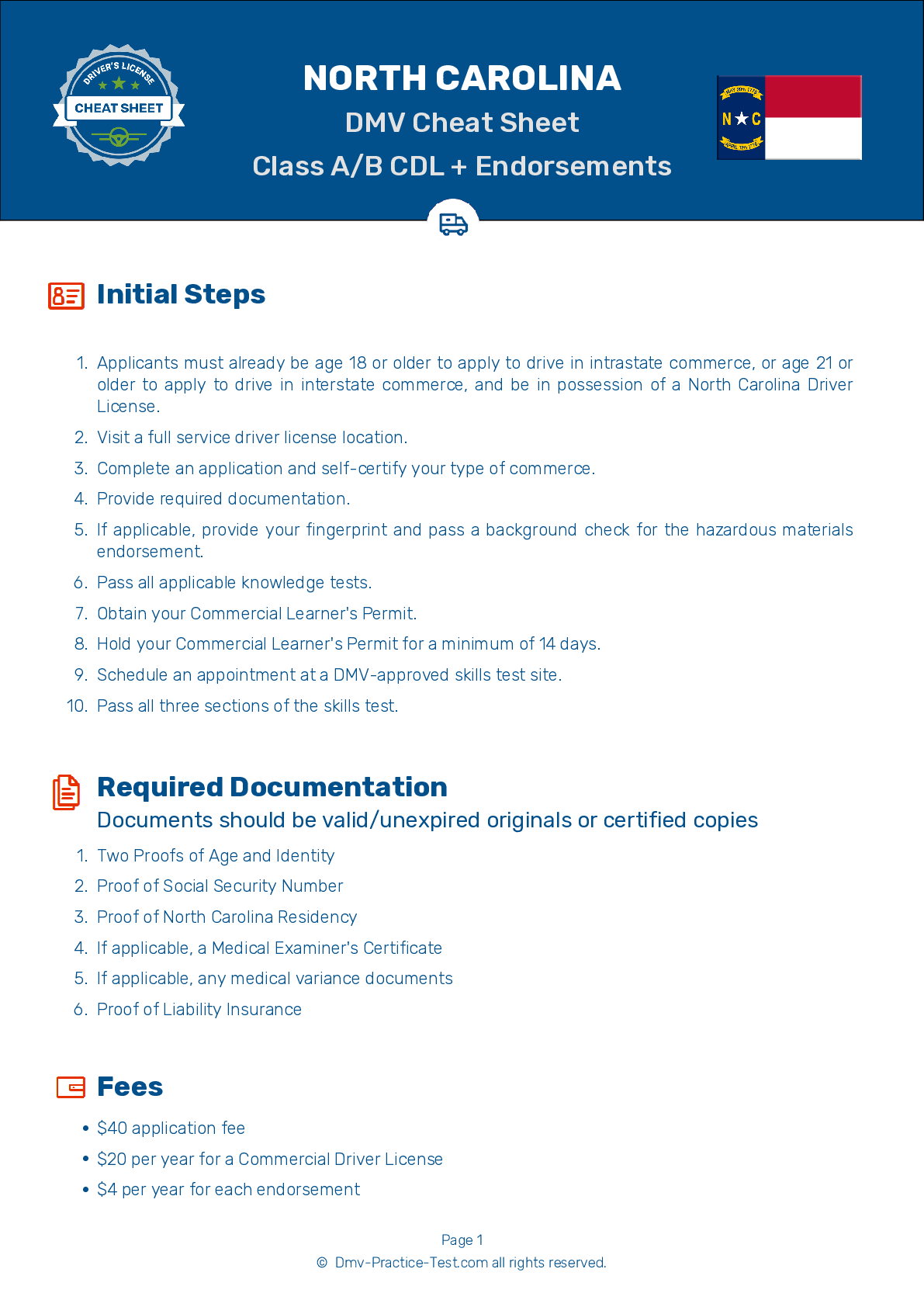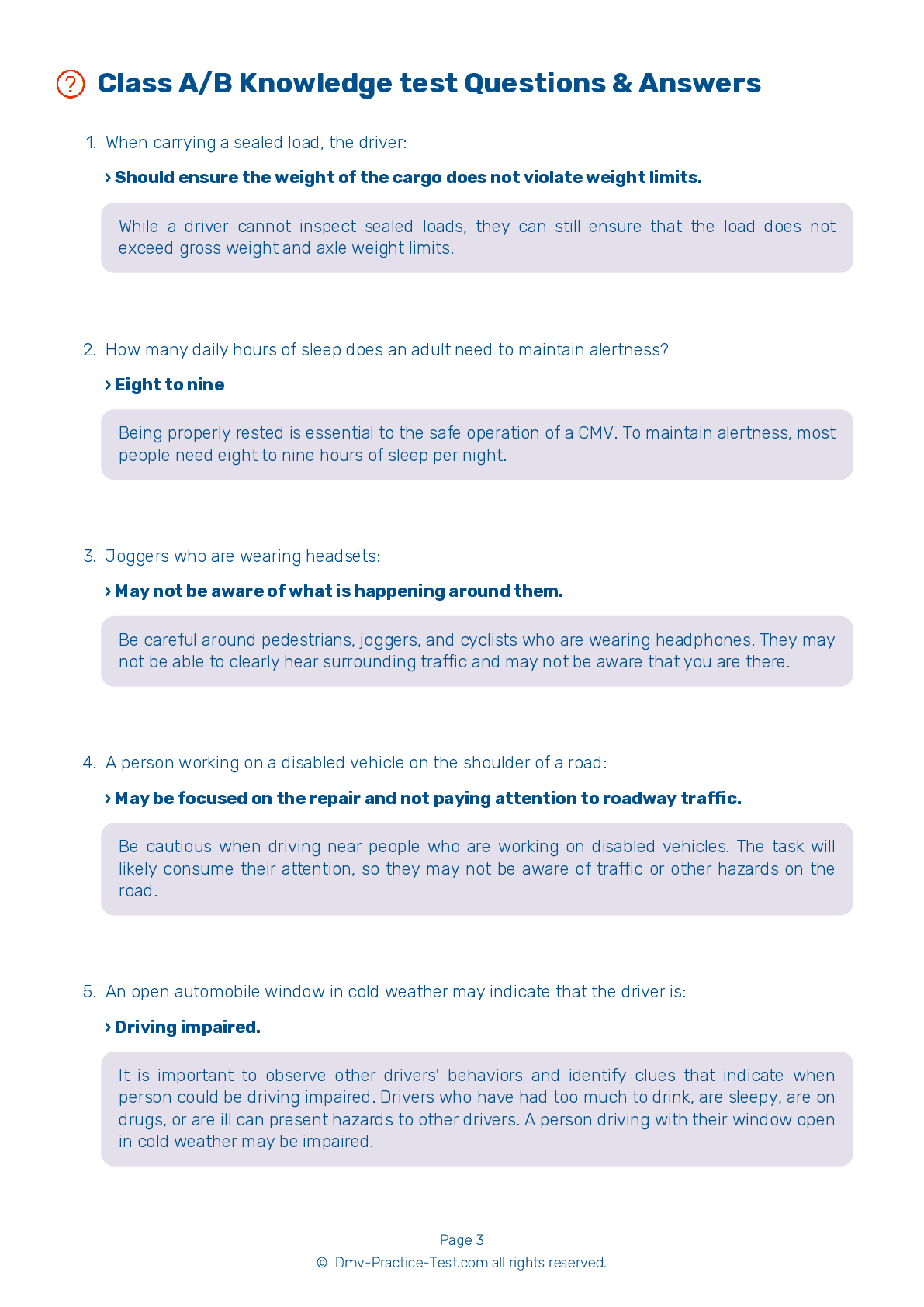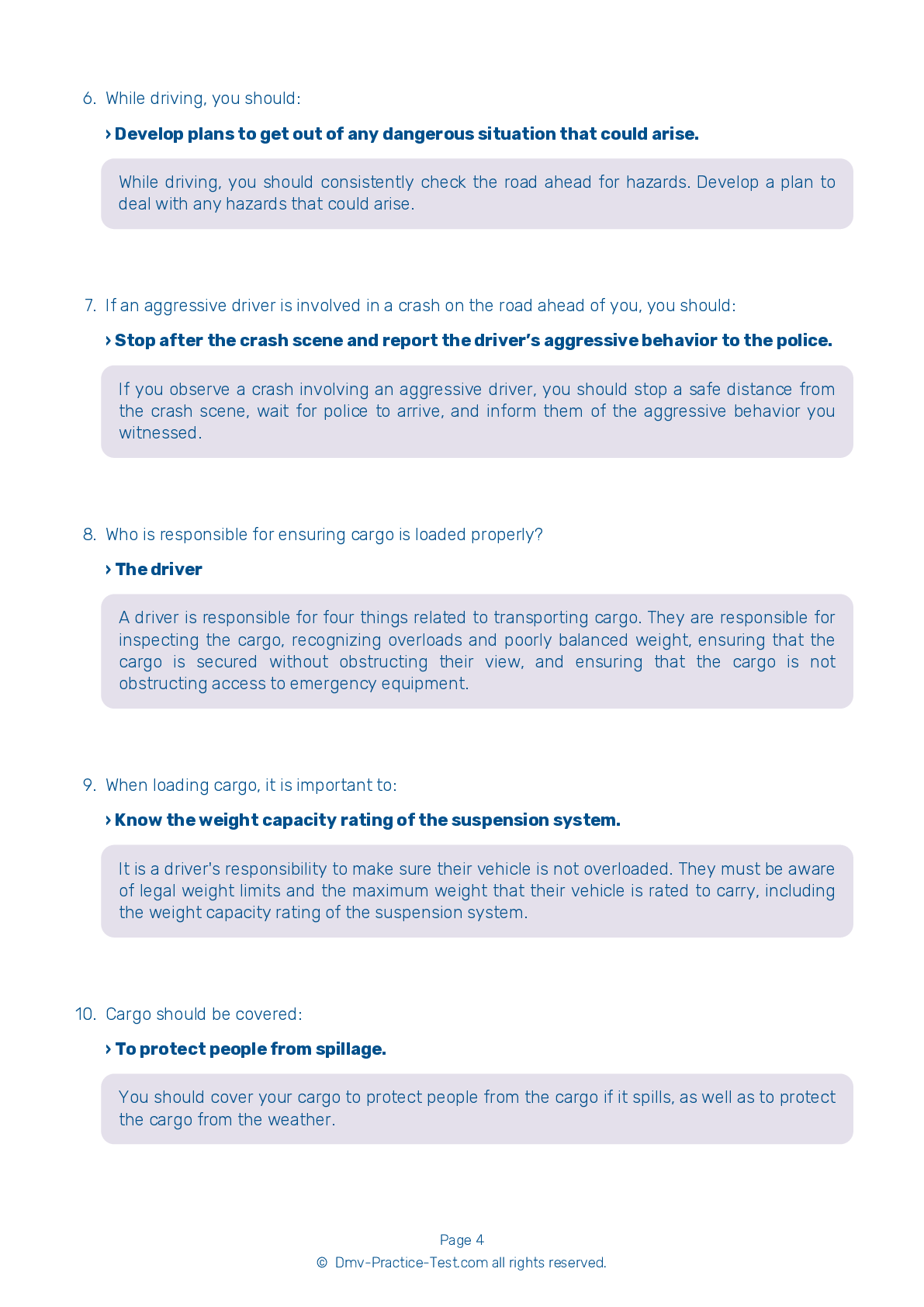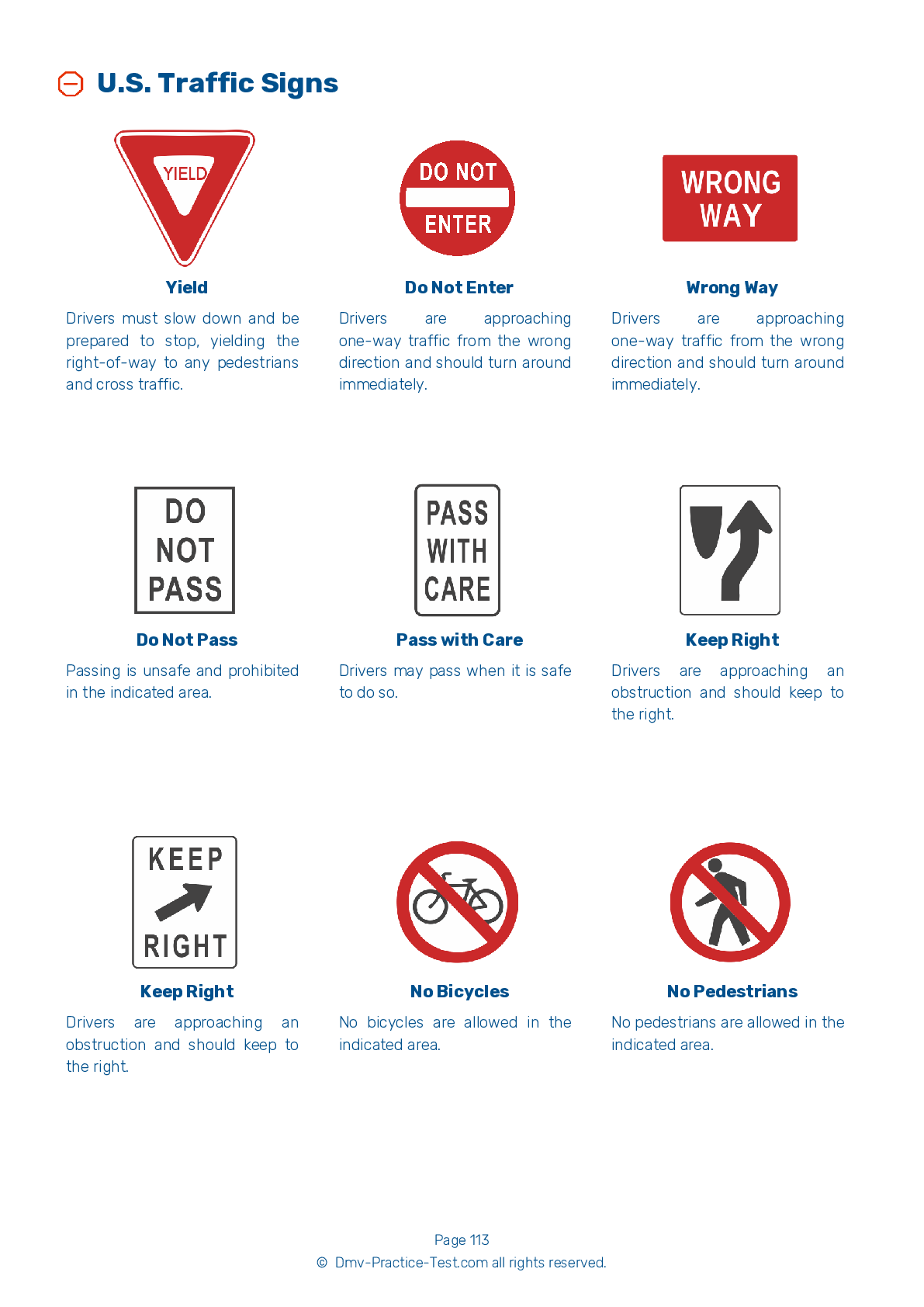Tank Endorsement Test | North Carolina 2026 #2 Page 3 of 3
Train for FREE with our North Carolina tank endorsement practice test online. The official exam test consists of several obligatory parts, with all of them checking your knowledge of different blocks of road rules. If you need to obtain a NC tank license in 2026, practice as much as possible. Free sample tests published on our website will help you check and improve your knowledge and boost your grades. Please bear in mind that DMV requirements for issuing a CDL tank vehicle endorsement may vary from state to state.
15 . Carrying liquid cargo:
Hauling liquids in a tank requires special skill. Due to the danger of liquid surge, carrying liquid cargo is more difficult than carrying solid cargo.
16 . If you are approaching a law enforcement vehicle that is stopped on the right side of the road with its lights flashing, you should:
When approaching an emergency vehicle that is stopped on the right side of the road, you should move into the left lane, if possible. If you cannot change lanes, slow down and pass the stopped vehicle with caution.
17 . Hazardous materials may be transported:
You must have a CDL with a hazardous materials endorsement to drive a vehicle of any size that is used to transport hazardous materials.
18 . When driving:
Operators driving too fast is a major cause of fatal crashes. You must continually adjust your speed to a rate that is safe for road and traffic conditions.
19 . If involved in an accident, which of the following is not recommended?
When involved in an accident, you should protect the area, notify authorities, care for the injured, collect required information, and report the accident. You can lose your license for leaving the scene of an accident.
20 . An improperly placarded vehicle:
A vehicle carrying hazardous materials must be appropriately placarded to be driven. An improperly placarded vehicle may only be driven if necessary to protect life or property in an emergency.
See the exact questions that will be on the 2026 North Carolina DMV exam.
99.2% of people who use the cheat sheet pass the FIRST TIME
Lillian MCcranie explains how our CDL study guide was helpful in passing the exam and recommends it to everyone.
Cameron tells us how he purchased the CDL exam, and found it to be a useful tool which helped him pass the exam and find a job.



